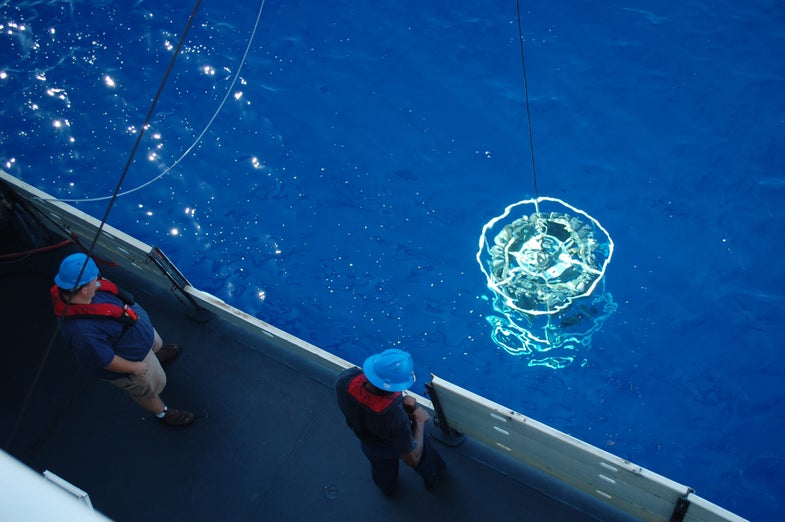Bacteria Ate All the Methane From the Deepwater Horizon Oil Spill, New Study Says
Following the greatest environmental catastrophe in recent history, the lowest life forms among us have been the biggest heroes. Once...

Following the greatest environmental catastrophe in recent history, the lowest life forms among us have been the biggest heroes. Once again, scientists have found that bacteria ate up the remnants of the the Deepwater Horizon disaster.
Within four months of the oil spill, bacterial blooms had removed more than 200,000 metric tons of dissolved methane, returning concentrations to normal background levels.
That was a surprise, because in mid-June, scientists found methane concentrations nearly 100,000 times above normal levels, and learned it was decomposing slowly, suggesting it would take years for the hydrocarbon to dissipate.
“We couldn’t have been more wrong. It decomposed rather quickly and was completely consumed within a matter of months,” said lead researcher John Kessler, an oceanographer at Texas A&M University, in a news release.
Kessler and colleagues took three cruises aboard the NOAA ship Pisces between Aug. 18 and Oct. 4, collecting 207 separate water samples and measuring their oxygen and methane concentrations. Oxygen drops when bacteria breathe methane, so the researchers say the depleted oxygen levels can only be explained by consumption of the methane.
They also examined the genetic sequences of bacteria in the samples, which suggested a growing population of methane-munching life forms.
Methane, the primary ingredient in natural gas, was to blame for the spill in the first place — on April 20, a methane bubble surged from the Macondo well up the Deepwater Horizon’s drill column, busting several seals as it belched toward the rig. The resulting explosion killed 11 workers and severed the rig from the well, allowing oil to spew forth for 83 days.
As workers attempted to burn, vacuum, sponge and contain the oil, invisible microbial communities were hard at work. Scientists said last August that a previously undiscovered species of bacteria had made quick work of a massive oil plume; apparently methanotrophs, species of methane-munching bacteria, were also feasting on the spill.
Bacteria have evolved to live with the Gulf’s naturally occurring oil seeps and high methane concentrations, so it makes sense that they were ready to go to work. Apparently they are more effective than we thought.
As with any controversial study, not everyone was satisfied with the results — Ian MacDonald, a professor of biological oceanography at Florida State University, told NPR the team did not account for deep-sea currents that could have carried away the methane. Further studies will shed more light on the findings.